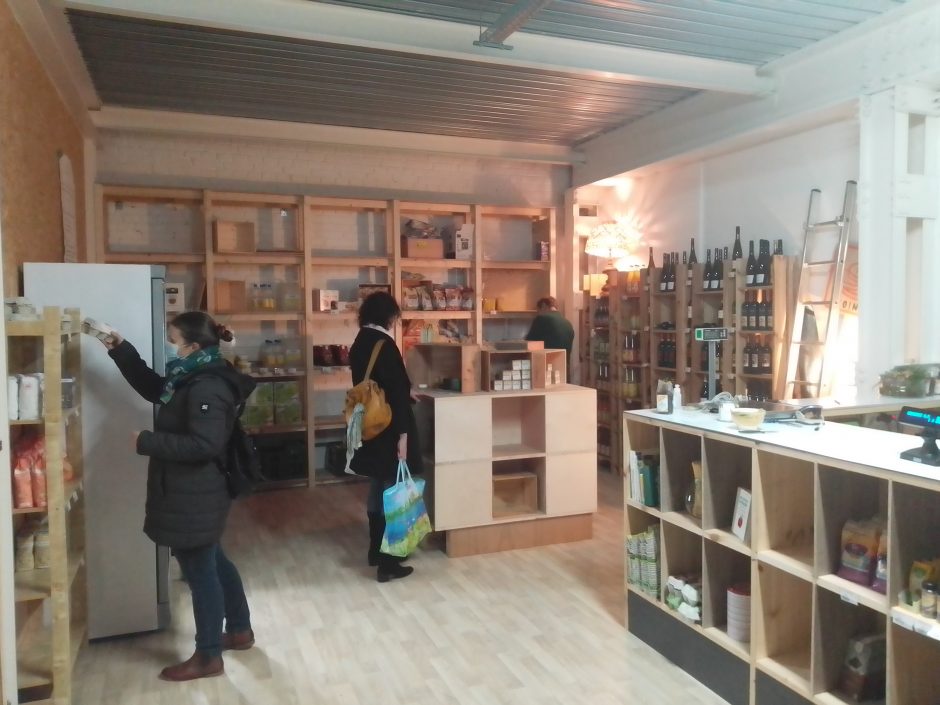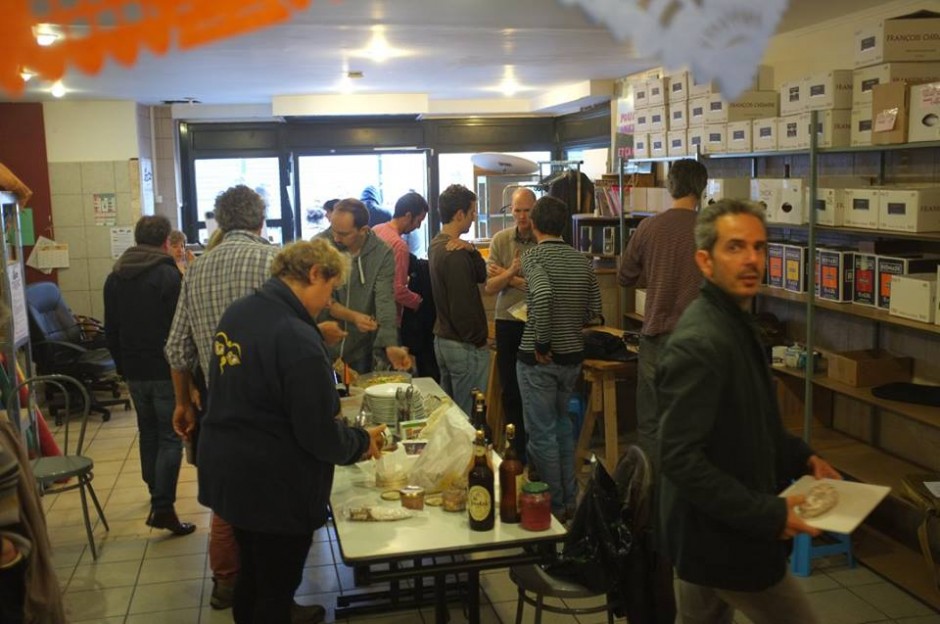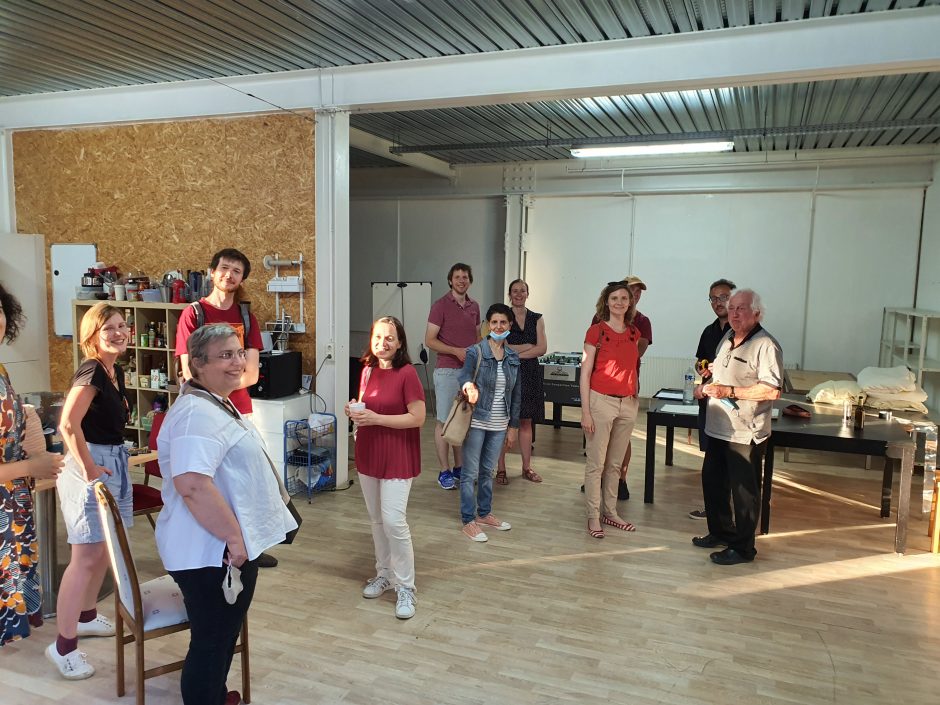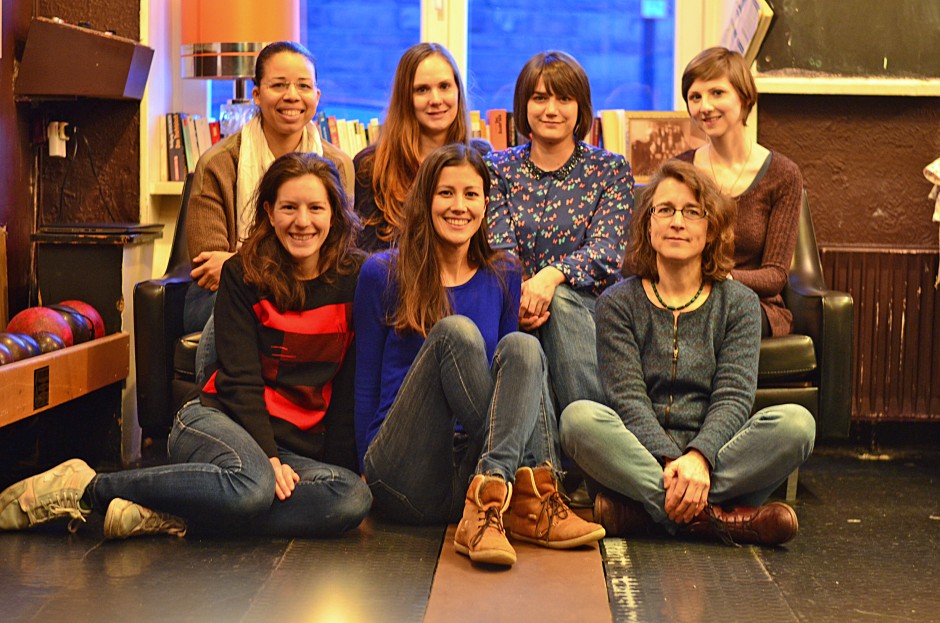A co-operative supermarket model founded 40 years ago to offer Brooklyn residents the finest food at reasonable prices is gaining popularity in Europe.
In recent years the Park Slope Food Co-op in New York has inspired communities across France, Belgium, Ireland and Luxembourg to set up their own co-ops to sell high-quality food at affordable prices. The model is based on the idea of members volunteering in the stores to cut down costs and be able to benefit from special discounts. Park Slope, which reported annual sales revenues of US$58.3m, carries over 15,000 products. The 17,000 members of the co-op account for 75% of the workforce and are the only people who can shop at the supermarket. Members on low incomes can also access extra discounts.
Upon learning about the success of Park Slope in New York, a group of Paris residents set up La Louve, a co-op store selling organic produce. They hoped to not only sell affordable organic products, but also pay producers a fair price. The co-op aims to source products from local farmers engaged in environmentally responsible and ethical practices. Members work for La Louve once every four weeks, saving between 20% and 40% on groceries.
In Lille another group has set up Super Quinquin, a co-operative based on the same principles applied by La Louve. The 10 founding members included public servants, business managers and activists; all are interested in food issues and unhappy with the current state of affairs when it comes to responsible consumption. The same model was also adopted to set up Supercoop in Bordeaux, La Chouette Coop in Toulouse, and Scopeli in Nantes.
Olivier Mugnier, director of the French National Association of Consumer Co-operatives (FNCC), says that one of the factors that has helped to promote the co-operative grocery store model in France is the growing interest in locally grown and responsibly sourced healthy food. Consumers are also more keen to get involved, he says, be that through a direct link, collaborative platforms or, of course, by being involved in a consumer co-operative.
Another important element was a shift in people’s attitudes to co-ops, which Mr Mugnier attributes to the promotional activities that took place in 2012 – the International Year of Co-operatives, and the passing of the of the Law on the Social and Solidarity Economy (SSE) in 2014.
“All of these elements allowed the Louve project in Paris to take off with the obtaining of the premises they needed to move from the experimentation phase to a real store opening,” he says. “The project was highly publicised because it responded to the aspirations described above, it was imitated and we now have five supermarkets in France operating on the same principle, and around 30 more or less advanced projects: some are about to open like La Chouette, or in the start-up phase.”
FNCC has worked closely with La Louve to introduce its founding members to the specificities of consumer co-operatives in France. It also helped the group develop their co-op’s statutes and business model and guided them on what should be implemented via a point of sale system for the safety of its customers and suppliers.
The federation also provides information on the functioning of consumer co-operatives and guiding groups in the process of starting up. Residents wishing to exchange information can also take part in activities organised by FNCC.
“This support is provided free of charge: no funding is requested and membership of the FNCC remains optional, even after this support. For older co-operatives, which are our historic members, it is about highlighting their values and supporting the dissemination of this model, which thus regains its vitality,” adds Mr Mugnier.
Across the border in Belgium, the Bees Coop in Brussels is running the country’s first consumer-owned and managed supermarket. Like Park Slope, its model functions based on a ‘triple commitment’ from its members – who are simultaneously an owner, a worker and a customer.
The member commits to working three hours per month at the supermarket. Members perform the majority of tasks, which allows the co-op to reduce costs and offer quality products at 20% lower than other supermarkets. The shop is open solely to its members and offers high-quality essential groceries, household products and toiletries at affordable prices. The project was launched in 2014 by a group of citizens from the Reseau ADES – a youth network campaigning for democratic, social and ecological alternatives. They started by creating a buying group, which tested products and sought to understand how distribution would work. In the process of setting up, they engaged with Park Slope and visited La Louve in Paris.
The co-op has now grown to include 800 active members. When setting up, one of the most difficult challenges was finding the right legal structure for the model, says member Martin Raucent – particularly since members not only buy shares, as they would in a typical co-op, but also volunteer to work in the store. Another challenge was deciding what Bees Coop would aim to achieve and what products it would sell. The co-op works closely with local producers to reduce food waste and promotes bulk buying.
Key to its approach was creating a community that would support the project and help to raise awareness about it. The initiative soon gained the support of the local authority and the Ministry of Environment, which provided some financial support. A local bank provided a loan that coupled with members’ capital helped to get the business off the ground. Bees Coop is happy to engage with other groups interested in setting up similar supermarkets, adds Mr Raucent.
The Brooklyn story also inspired a group in Limerick, Ireland, to come together to open a community grocery co-operative. Urban Co-op began trading in July 2013 as a buying club, selling fruit and vegetables, bread and eggs. Nowadays it operates a full-service retail grocery store and community wellness hub, with over 2,500 members. The store stocks a range of certified organic fruit, vegetables and wholefoods along with a selection of locally grown produce from quality suppliers in and around County Limerick.
The co-op has three types of members: Community members, who invest €1 to receive a membership fob, a monthly newsletter and membership discount offers; Co-operative members, who enjoy all the benefits community members get but can also attend general meetings, vote, and contribute to the development and running of the business; and Cultivate members, who further invest in the work of The Urban Co-op. Future plans include developing a demo kitchen, an online sales website, and opening longer opening hours.
A similar approach was adopted by Alter Coop in Luxembourg, one of the most recent in the wave of Park Slope-type supermarkets. The co-op is currently sourcing local suppliers, and tested some of their produce at a stall at the fifth edition of the Alternative Food Market organised by SOS Faim on 18 October in the city of Luxembourg.

Exif_JPEG_420
“The project was immediately supported by the transition movement in Luxembourg, including CELL (Center for Ecological Learning in Luxembourg),” says member Camille Lacombe.
“Our store is operated by its members, who are also the only ones authorised to shop there. The store’s operating costs are thus reduced and the products can therefore be sold to members at a lower price.
“By the end of 2018, the co-op had 50 members. Today, there are about 100 of us.”
Only members who are active in the co-op can shop from it – although, in addition to active and super active co-operators, membership includes discreet co-operators. These invest an amount of money and can participate in the decision-making process but cannot shop at the supermarket. Active co-operators volunteer three hours at the supermarket every month. They can then shop at the store and enjoy special member discounts. They can also participate in the decision-making. Super active co-operators do everything an active co-operator does and in addition, participate further in the project’s development.
The co-op’s current premises are at the Bamhaus in Dommeldange where the grocery shop is open on Monday and Wednesday evenings and Saturday mornings. Only active and super active co-operators can shop there.
Being a co-operator helps to support the project by building the co-operative’s capital. This implies having at least 10 shares in the co-operative, with one share at €10 and 10 shares for €100. All members can make their voices heard by participating in the annual general meetings of the co-operative.
“Right now, the supermarket is open as a test grocery store – this will continue for a few years, in order to raise enough members and funds to eventually open a larger supermarket,” says Ms Lacombe.
The majority of the products on offer are organic and locally sourced and Alter Coop aims to expand its range to be able to offer products for different budgets.
In the start-up process the main challenges have been developing a business plan and finding suppliers as well as the right IT system to support they co-op’s activity.
“These steps are partly behind us and we are delighted to have opened the grocery store a few months ago,” adds Ms Lacombe. “The challenge now is to develop it, which still requires a considerable investment from members, but above all the development of procedures to allow all the co-operative’s members to get involved and keep the store running, while continuing to increase the number of employees and products on offer, driving the project forward. It’s a real collective and human adventure.”
Alter Coop is not the first co-operative grocery store in Luxembourg. OUNI, which stands for Organic Unpackaged Natural Ingredients, opened as the country’s first packaging free organic shop in 2016. The founding members were local residents who shared a passion for innovative, no-waste approaches. They chose the co-operative model because they realised early on the public wanted to be involved in their project.
OUNI has a hybrid membership offer. If members want to take an active role they need to volunteer two hours of their time per month. These members then get a reduction of 5% on all their purchases. Regular members can get a return on their investment if approved at the annual general meeting, have the right to vote in the general meetings based on the one member, one vote principle, and can be elected to the co-op’s board. A member can choose to buy between one share for €100 up to 20% of the co-operative’s capital.
Park Slope’s success played a key role in helping to spread awareness about its model. The co-op itself has also engaged with anyone interested in replicating its business model. La Louve and Park Slope have a long-standing relationship and some members of the French co-op travelled to Brooklyn in 2016 to see the Park Slope model in action. La Louve also received support from Park Slope in terms of organisation and IT tools for monitoring and management. Members of SuperCoop in Bordeaux and Urban Co-op in Ireland also engaged with Park Slope in the run-up to opening their own store.
While not all co-ops followed the Park Slope model, they used the Brooklyn experience to develop their own approach suited to local needs. With the trend for organic products likely to continue, it is possible that more such supermarkets will emerge in the years to come.


